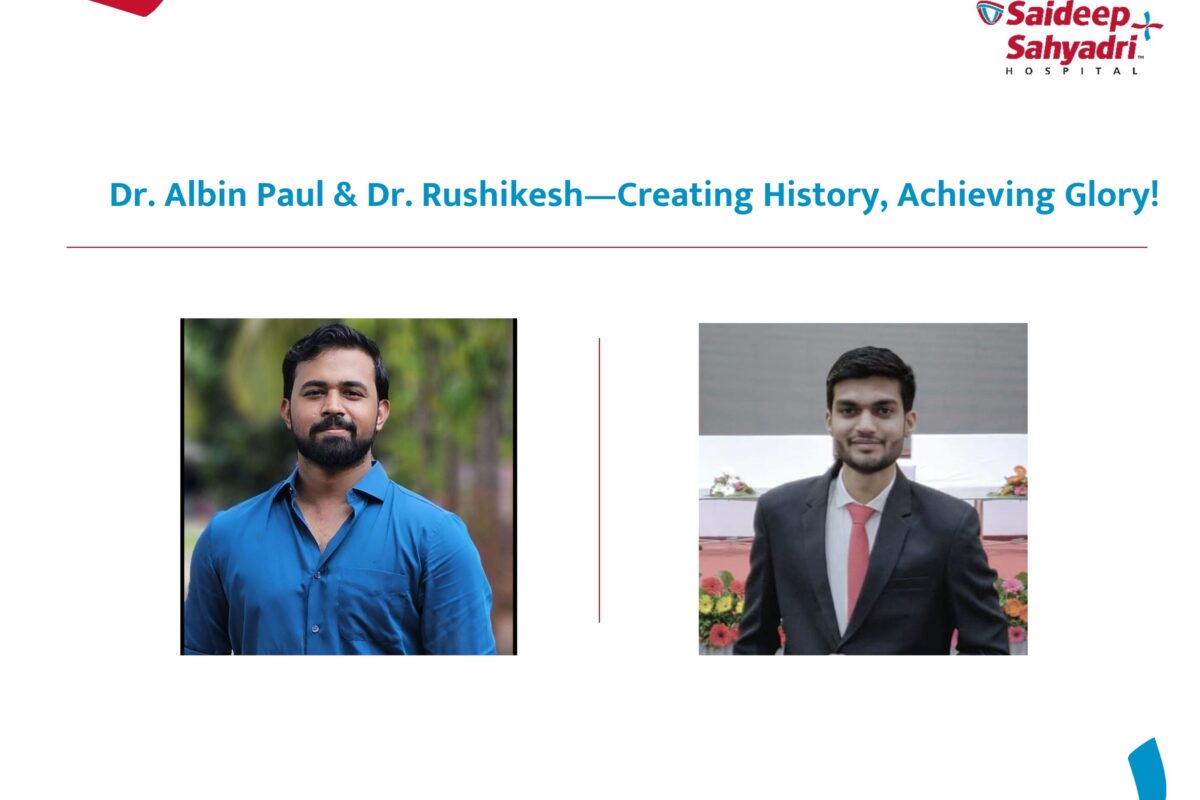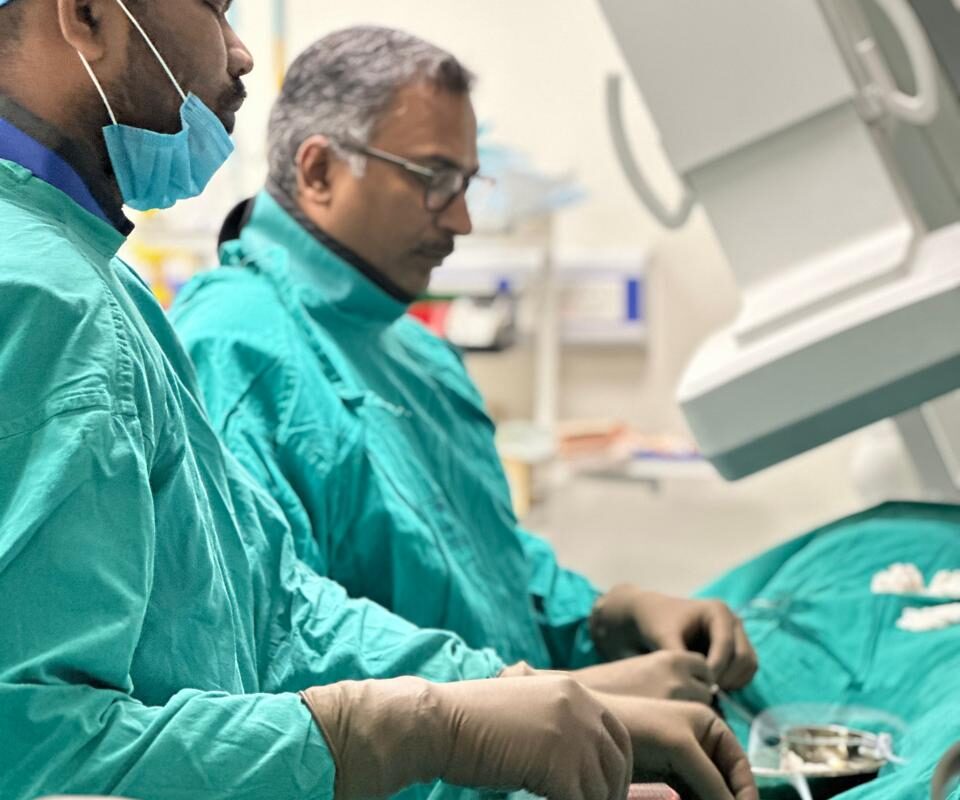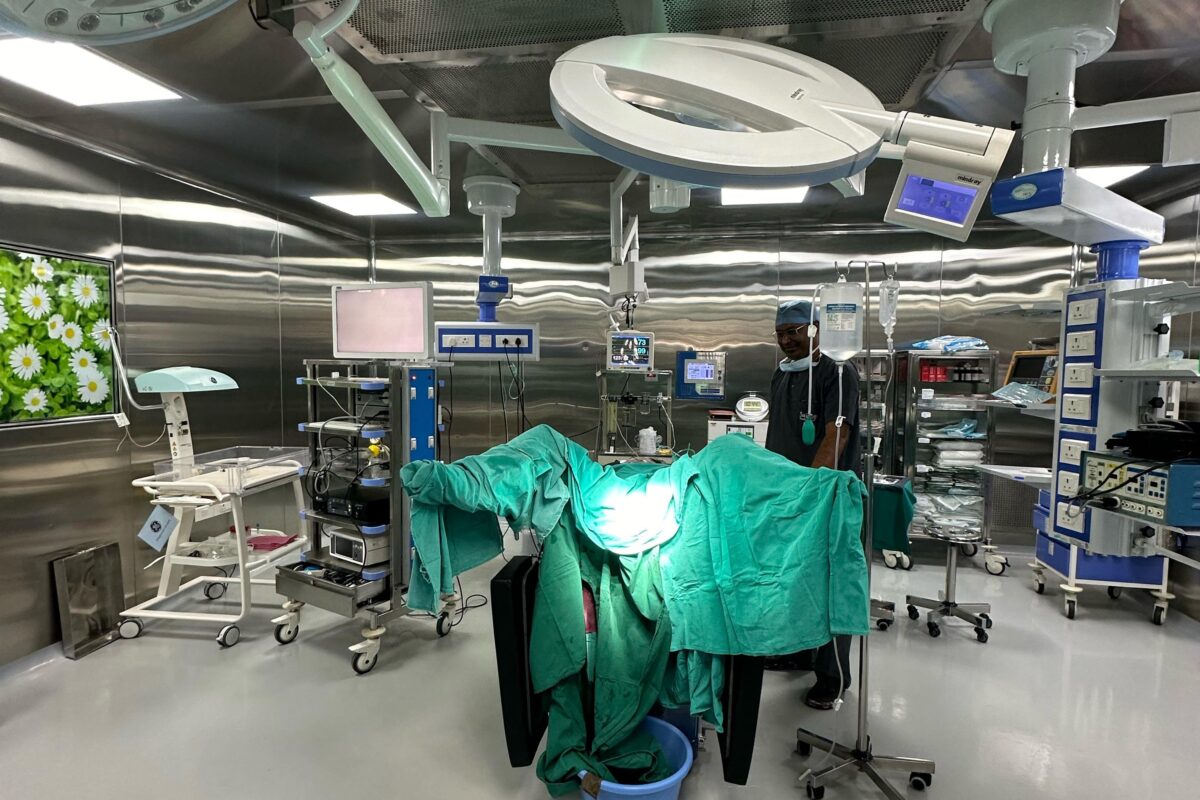The Saideep Hospital Cardiology Department, led by the renowned Interventional Cardiologist Dr. Kiran Deepak, transforms cardiovascular care with world-class facilities and techniques. Specialising in advanced surgeries, the department consistently achieves remarkable results, offering hope and improved quality of life to countless patients.
1. Coronary Angiography
With a legacy of performing over 30,000 angiographies, Saideep Hospital excels in accurately diagnosing coronary artery diseases. This minimally invasive procedure identifies blockages and irregularities, guiding further treatment.
2. Angioplasty (PTCA)
A pioneer in percutaneous interventions, the hospital has conducted more than 7,000 angioplasties with excellent outcomes. This life-saving procedure reopens blocked arteries, restoring optimal blood flow to the heart.
3. IVUS (Intravascular Ultrasound)
Saideep Hospital employs Intravascular Ultrasound (IVUS) to gain real-time, detailed images of arteries. Having performed over 150 IVUS procedures, this technology ensures precise assessment and treatment planning for arterial disease.
4. Rotablation
For treating hard, calcified plaques, Dr. Kiran Deepak specializes in rotablation. With 50+ cases successfully performed, this advanced technique uses a high-speed diamond-tipped drill to clear arterial blockages safely and effectively.
5. OCT (Optical Coherence Tomography)
State-of-the-art imaging using Optical Coherence Tomography (OCT) has revolutionized precision in interventional cardiology. Saideep Hospital has conducted 40+ OCT-guided interventions, ensuring unparalleled clarity in treatment.
6. Intravascular Lithotripsy (IVL)
Breaking new ground in cardiac care, the hospital leverages Intravascular Lithotripsy, a cutting-edge technique to treat severely calcified arteries. Over 10 IVL cases stand testimony to Dr. Deepak’s expertise.
7. TAVR (Transcatheter Aortic Valve Replacement)
For patients with severe aortic valve disease, TAVR provides a minimally invasive alternative to open surgery. Dr. Kiran Deepak has successfully managed 5 TAVR cases, marking a milestone in non-surgical valve replacement therapy.
8. Balloon Mitral Valvuloplasty (BMV)
This procedure is performed to treat mitral valve stenosis, a condition where the mitral valve is narrowed. A balloon catheter is used to widen the valve, improving blood flow.
9.IVC Filter Placement
An IVC (Inferior Vena Cava) filter is a device implanted in the large vein that carries blood from the lower body to the heart. It helps prevent blood clots from reaching the lungs.
A Trusted Destination for Cardiac Care
Saideep Hospital’s commitment to excellence, coupled with Dr. Kiran Deepak’s unparalleled experience, makes it a leading name in cardiology. Their patient-centric approach and state-of-the-art techniques ensure life-changing outcomes for every heart they treat.
Empowering lives, one heartbeat at a time.







